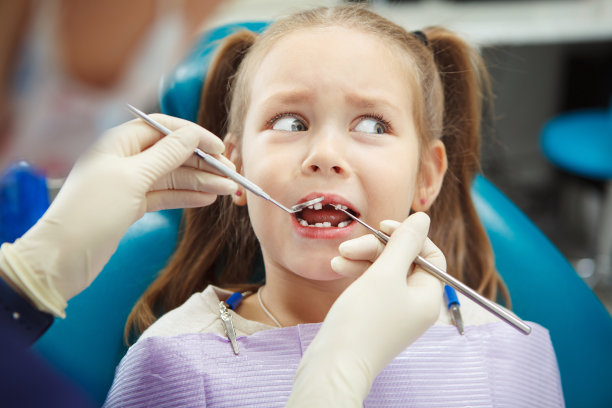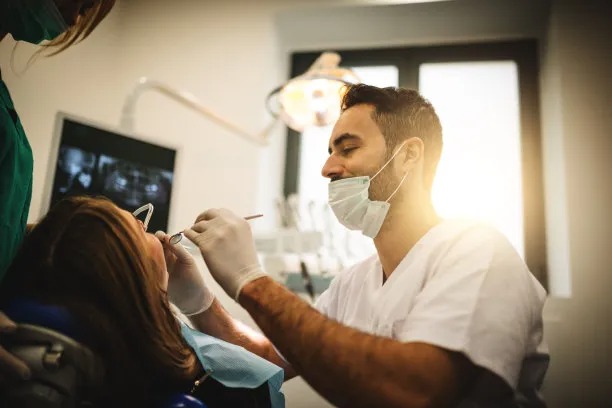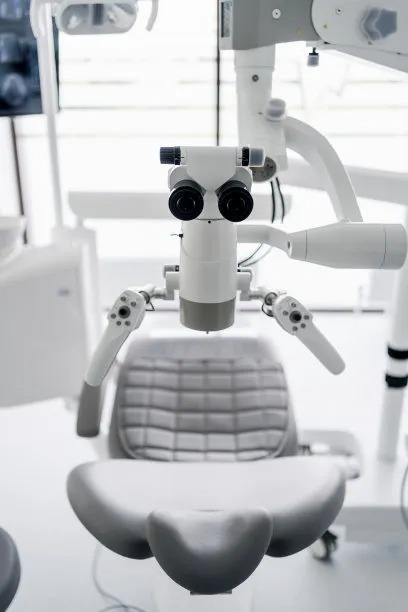Summary: Dental fillings are a common solution for repairing cavities and damaged teeth, but proper precautions before and after the procedure are crucial for optimal recovery and oral health. This article highlights essential preparations that individuals should undertake before their dental filling appointment, ways to make the post-procedure experience comfortable, recognizing the signs of complications, and maintaining long-term oral health to prevent future issues. Each of these aspects plays a significant role in ensuring the best outcomes from a dental filling, underscoring the importance of patient knowledge and proactive care.
1. Preparing for Your Dental Filling Appointment

Preparation is key when gearing up for a dental filling procedure. First and foremost, it’s essential to communicate openly with your dentist about your medical history and any allergies you might have. This information allows your dental professional to choose the safest and most appropriate materials for your filling.
Additionally, consider bringing a list of medications you are currently taking, as certain medications can influence the procedure’s safety and effectiveness. Your dentist may recommend adjusting your medications prior to the appointment to minimize risks.
Lastly, try to avoid consuming food or beverages a few hours before the appointment, especially if local anesthesia is administered. Arriving with an empty stomach can help prevent discomfort and nausea during and after the procedure.
2. Post-Procedure Care for Optimal Comfort
After your dental filling, following specific aftercare instructions is crucial for a smooth recovery. Begin by allowing the anesthesia to wear off before eating or drinking anything hot, cold, or hard. This can help you avoid inadvertently biting your tongue or cheeks, as well as prevent thermal injury.
It’s also recommended to stick to a soft-food diet for the first 24-48 hours post-procedure. Foods like yogurt, mashed potatoes, and smoothies are excellent choices that minimize chewing effort and quickly provide nourishment without discomfort.
Moreover, maintaining good oral hygiene during recovery is imperative. Ensure you brush gently around the filling site and avoid flossing the area until it has fully healed. This helps prevent irritation and supports the closure of any wounds in the mouth.
3. Recognizing Complications and Seeking Help
Not all dental procedures go as planned, so being vigilant about potential complications after your filling is imperative. Be on the lookout for excessive pain, swelling, or bleeding, which may indicate an adverse reaction or infection. If you encounter any of these symptoms, contacting your dentist promptly is essential.
Additionally, monitor the filling itself for any signs of dislodgment or sensitivity when chewing. Sometimes, a filling may not bond well with the tooth, leading to further issues. Speak with your dentist if you notice any irregularities; early intervention can often resolve issues before they escalate.
Lastly, be aware of any allergic reactions, such as rashes or unusual swelling in your mouth or face. These reactions to the filling materials are rare, but immediate medical attention is necessary if they occur.
4. Long-term Oral Health Maintenance Tips
Once youve recovered from your dental filling, maintaining long-term oral health is vital to prevent further decay or the need for additional fillings. Establishing a robust oral hygiene routine, which includes brushing twice a day and flossing daily, helps keep your teeth and gums healthy. Using fluoride toothpaste can also enhance tooth strength.
Regular dental checkups are equally important. Visiting your dentist every six months allows for professional cleanings and early detection of potential dental issues before they become serious problems.
Moreover, adopting a balanced diet rich in vitamins and minerals can significantly impact oral health. Foods high in calcium, vitamin D, and phosphorus help strengthen teeth, while avoiding excessive sugary snacks minimizes cavity risk, ensuring your fillings remain intact and functional.
Summary:
In conclusion, proper preparation and care before and after a dental filling can enhance recovery and maintain oral health. This article highlighted the necessities of preparation, post-procedure comfort, awareness of complications, and long-term dental care. By following these guidelines, individuals can ensure the effectiveness of their fillings and promote overall dental wellness.
This article is compiled by Vickong Dental and the content is for reference only.
Vickong Dental
Vickong Dental is a large medical group established in Hong Kong in 2008 by professors from well-known medical universities in Guangdong and Hong Kong, as well as medical doctors from key national '985' universities (including Master's supervisors and senior professors). The chain of branches brings together expert dentists with PhDs and Master's degrees from Hong Kong and Mainland China, committed to providing high-quality dental treatment.
"Vickong Dental Practices the University Motto of 'Healing and Serving Society,' with a Stable Operation for Sixteen Years. It Has Been honored with Hong Kong Enterprise Leaders's Choice,' and is a Global Trusted Implant Center for the Nobel Implant System. Recommended by Hong Kong Metro Broadcast and Guangdong Television, it Serves Customers from Over Thirty Countries and Regions, Gaining the Trust and Favor of Citizens from the Guangdong-Hong Kong-Macau Greater Bay Area and Surrounding Cities.

Thousands of customers' unanimous praise
The most recognized and highly recommended dental service by customers in the Guangdong-Hong Kong-Macau Greater Bay Area
We Ensure You Receive Detailed Care and Attention Here
Hong Kong standards, Shenzhen prices, Your Trusted English-speaking dentists

Vickong Dental Medical-Grade Instrument Disinfection Process
Vickong Dental Medical-Grade Instrument Disinfection Process

Vickong Dental Chain: A Warm and Comfortable Environment for Treatment






Appointment Hours

Q&A
Why choose Vickong Dental?
Vickong Dental practices the university motto 「Medicine to Benefit Society」, with each branch bringing together highly qualified dentists with doctoral and master’s degrees from Hong Kong and the Mainland, and has maintained seventeen years of steady operation。Recipient of 「2024 Hong Kong Enterprise Leaders Brand」, 「2025 Hong Kong Enterprise Leaders Brand」, a Nobel Biocare Global Trusted Implant Center, and a brand recommended by Metro Radio Hong Kong and Guangdong TV。
To date, we have served customers from more than thirty countries and regions,earning exceptionally high word-of-mouth recognition and trusted recommendations from residents across the Guangdong-Hong Kong-Macao Greater Bay Area and surrounding cities
We have eight major branches in Zhuhai、Shenzhen,and a consultation and service assurance center in Hong Kong,so you can book a free consultation at any time for any questions,which is very reassuring.
If I do not accept the quotation after the CT scan, will I be charged??
No! As long as the actual treatment has not started, you will not be charged any fees.
Will there be any additional charges during the treatment process?
No, there won’t be any additional charges. Before treatment begins, we will clearly explain the treatment plan and its corresponding fees. Only after the patient agrees and signs the consent form will we proceed with the dental service.
Can I pay in Hong Kong dollars?
Yes. Vickong Dental accepts payment in Hong Kong dollars. The amount will be converted based on the exchange rate of the day, and the applicable rate will be clearly communicated to you in advance.
Can I reschedule my appointment at any time?
Yes. Please contact us via **WeChat** or **WhatsApp** as early as possible, providing your original appointment time and details, along with your preferred new date and time slot for rescheduling.













